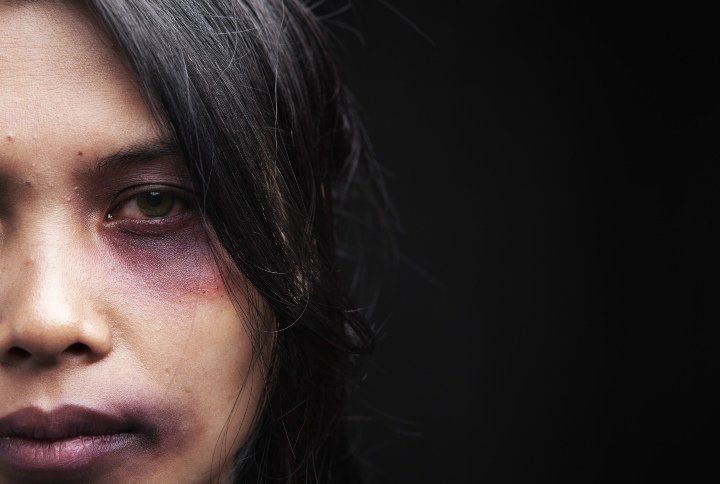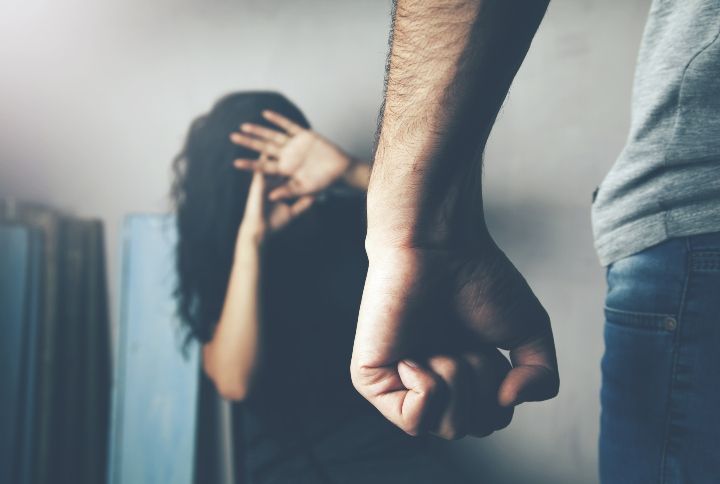
Since time immemorial, women have been at the receiving end of all forms of bestiality. Shurpanakha, Sita, Draupadi… the victims of innumerable wars humanity has seen. We have normalised the unkind, unjust ways which have been lopsidedly favouring men for generations. Violence against women is so deeply engraved within us that the curse words which are used by men or at times women themselves to convey their disrespect or disdain towards another creature are illustrative of the sexual violence directed towards a close female relative of the person. And this happens all day, every day. In a very matter-of-fact way.
So, we spoke to lawyer Ishanee Sharma, Managing Partner of Ishanee Sharma Law Offices to understand what all comes under domestic violence, what are the legal rights of the victim and how to find a way out of the abuse. Here’s what she had to say:
What Is Domestic Violence?
Violence, as we talk of it now, isn’t limited to physical violence. Its mental counterpart is as heinous, if not more. Females in this country have struggled for their right to live, let alone the others. Equal opportunity for education is a distant dream; equal pay for equal work, gender-based malnutrition, dowry, domestic violence, repeated episodes of cruelty under the garb of marriage.
Dowry, to the common man, is recognised as the fiduciary demand made by the boy’s family to the girl’s family in place of the marriage. Upon a lot of upheavals, now certain sections of society do relate to it as even the ‘gifts’ given to the groom’s family from the bride’s family.
Misconceptions
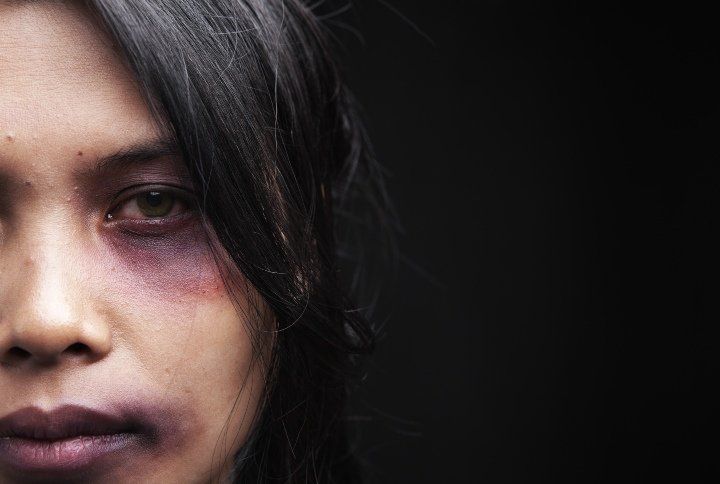
A very important facet of dowry still remains not so talked about. More often than not, the unsaid societal obligations, disguised as ‘vyavahaar’ at the times of festivals, childbirth, occasions, etc. Which, at times are also explicitly demanded. The girl and her parents recognise this as an accepted norm. Nobody questions it! In fact, the gifts and the givers are under the constant scrutiny of the takers and the people around them. This too is dowry and just as unacceptable.
We have to stand up for all these women around us. The gender roles have to be redefined. This deeply intrinsic discrimination has to stop. It’s 50% of the population of the country and the world we are talking about. In the most gruesome of circumstances, the most grotesque of human rights violations, empirical evidence suggests women are more often than not, the most badly affected victims.
A relationship can be violent and abusive without physical violence. It can include emotional, sexual, and physical abuse, and may involve control of your finances. Emotional abuse often goes unrecognised, but it can be very hurtful. Someone who is emotionally abusive towards the victim wants to chip away at their feelings of self-worth and independence. There are so many cases of violence and abuse, specifically the female victims who don’t even know their rights, who doesn’t know that they don’t need ‘somewhere to go’ to be able to stand up for themselves!
As a matter of fact, to contest any oppression in their marriages, they don’t need anywhere to go and any external financial support to maintain themselves. They should stand up to any wrong done to them, any form of abuse or violence! They have the full right to live their life with dignity. and a bucket full of rights to support this cause, right they can exercise irrespective of them being financially independent or not!
The Legal Rights Of A Domestic Violence Victim
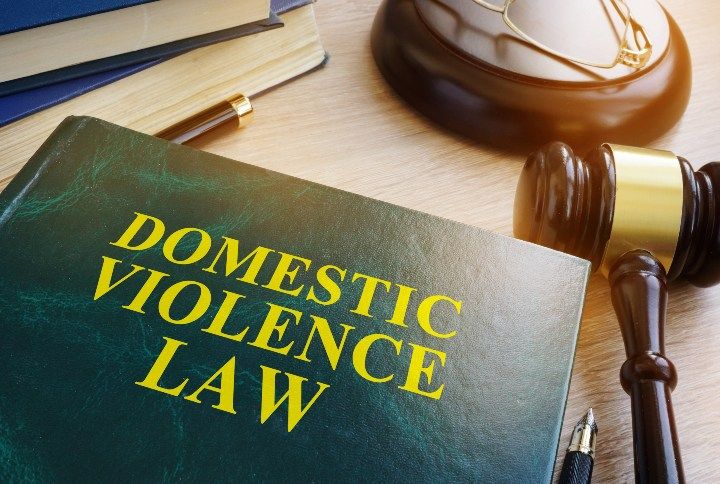
A wife has the legal right to live in the matrimonial house, even after the husband dies. Even if the house is not owned by the husband, belongs to his parents, or is a rented apartment. In case of separation, she can stay at the marital house until an alternative is arranged for her or she goes to her parental house. There isn’t any directive in the Hindu Marriage Act (HMA), 1955 that a married woman cannot stay at her parental house. She can lawfully stay, if and when she wants to.
Whereas property rights are concerned, a woman has equal legal rights to inherit her husband’s property as other heirs. She can inherit it only if the husband hasn’t prepared a will or hasn’t excluded her from the will. If a husband remarries without dissolving the first marriage, the rights to the property still belong to the first wife.
- A woman can and should report domestic violence under the Protection of Women Under Domestic Violence Act (D.V. Act), 2005. This act criminalises physical, emotional, sexual, economical, and other forms of ill-treatment. She can claim protection, maintenance, custody, compensation and continue to live in the same house. The amount of maintenance doesn’t include Stree Dhan and is set up by the court on the basis of the husband’s financial and living status (includes up to 25% of it).
- The Medical Termination Of Pregnancy Act,1971 gives a woman full autonomy to abort a child without the permission of the husband. The upper limit of getting a child aborted has been raised to 24 weeks.
- The Guardian and Wards Act of 1890 gives equal custodial rights and duties to both parents. However, if the child is below five years of age, the mother has superior rights. A woman has the right to take the child along with her while leaving the marital house without any court order. A woman can claim the custody of her children after divorce or separation, regardless of whether she is employed or unemployed. She can always claim maintenance from her husband.
The Way Ahead
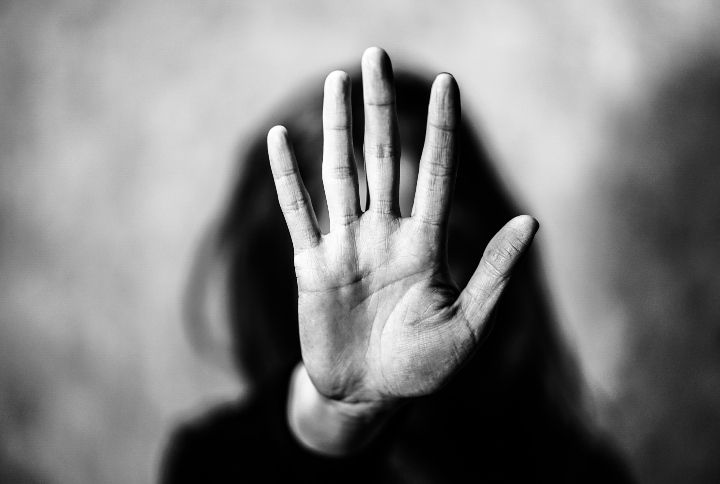
In case of an unhealthy relationship, the victim should consult a trusted professional. With their help recognising the warning signs at early stages would be simpler, getting out of the relationship, easier. At times leaving an abusive relationship can be dangerous, so it’s very important that they have a safety plan. And be in contact with police or a lawyer, counsellor or anyone who can be of help.
Their plight is beyond imagination. And what they need from the justice delivery mechanism is their basic right to live, to breathe, to eat, to survive which has been help captive under the claws of the society and ‘log kya kahenge’.
Lastly, lawyer Ishanee Sharma, Managing Partner of IS Law Offices said,
Even though the laws are different in every state, people suffering from an issue of domestic violence are mostly similar in their need for information, respect, advocacy, and attorneys equipped to stand beside them with real understanding. Domestic violence is a serious crime and every woman facing physical, mental, sexual or any assault should report it under the Protection of Women Under Domestic Violence Act (D.V. Act), 2005, it’s her right to fight against ill-treatment.
Join the Girl Tribe by MissMalini App to be a part of the conversation.Explore the app

